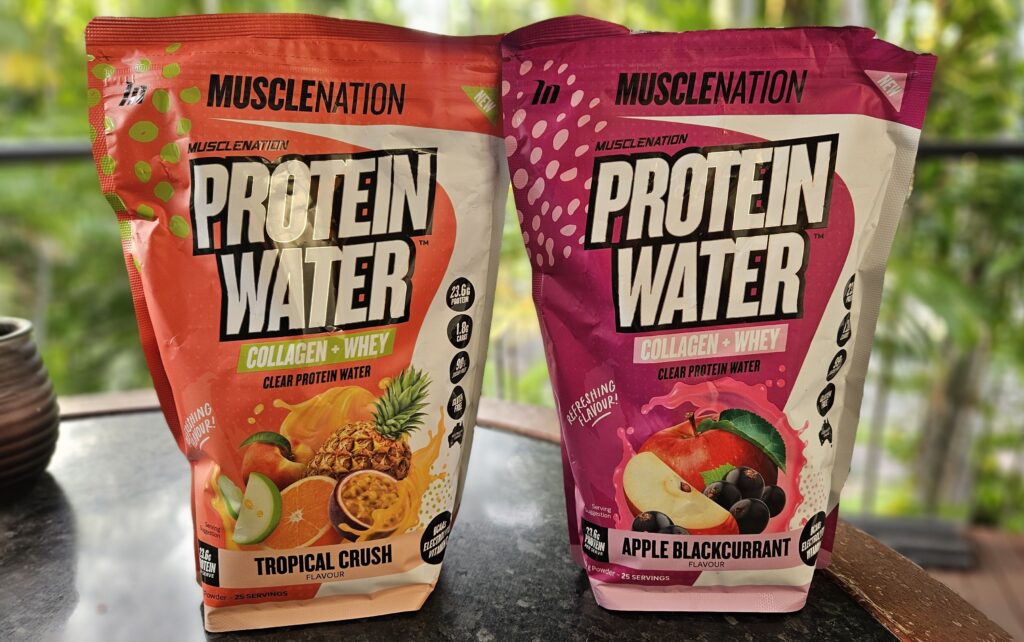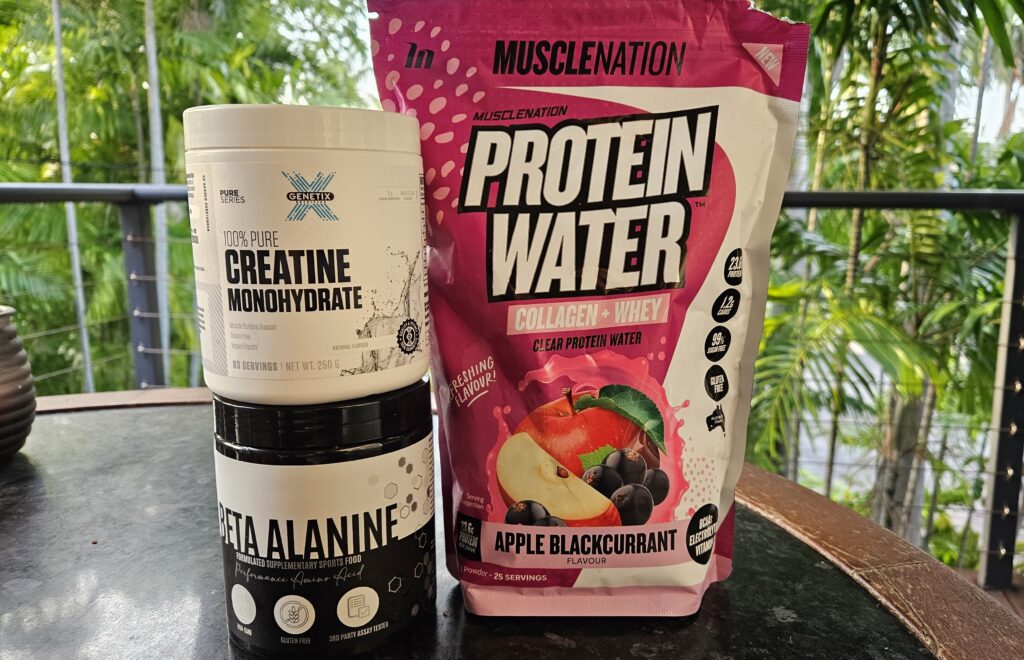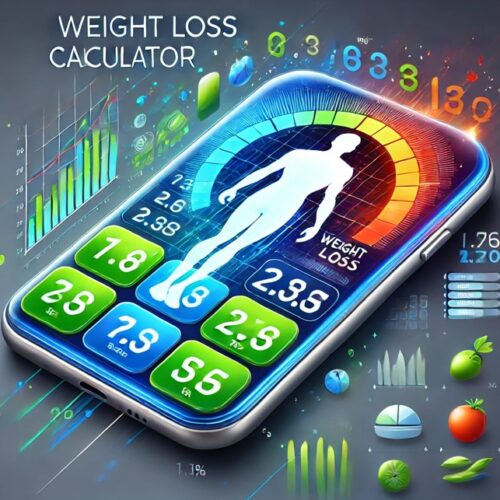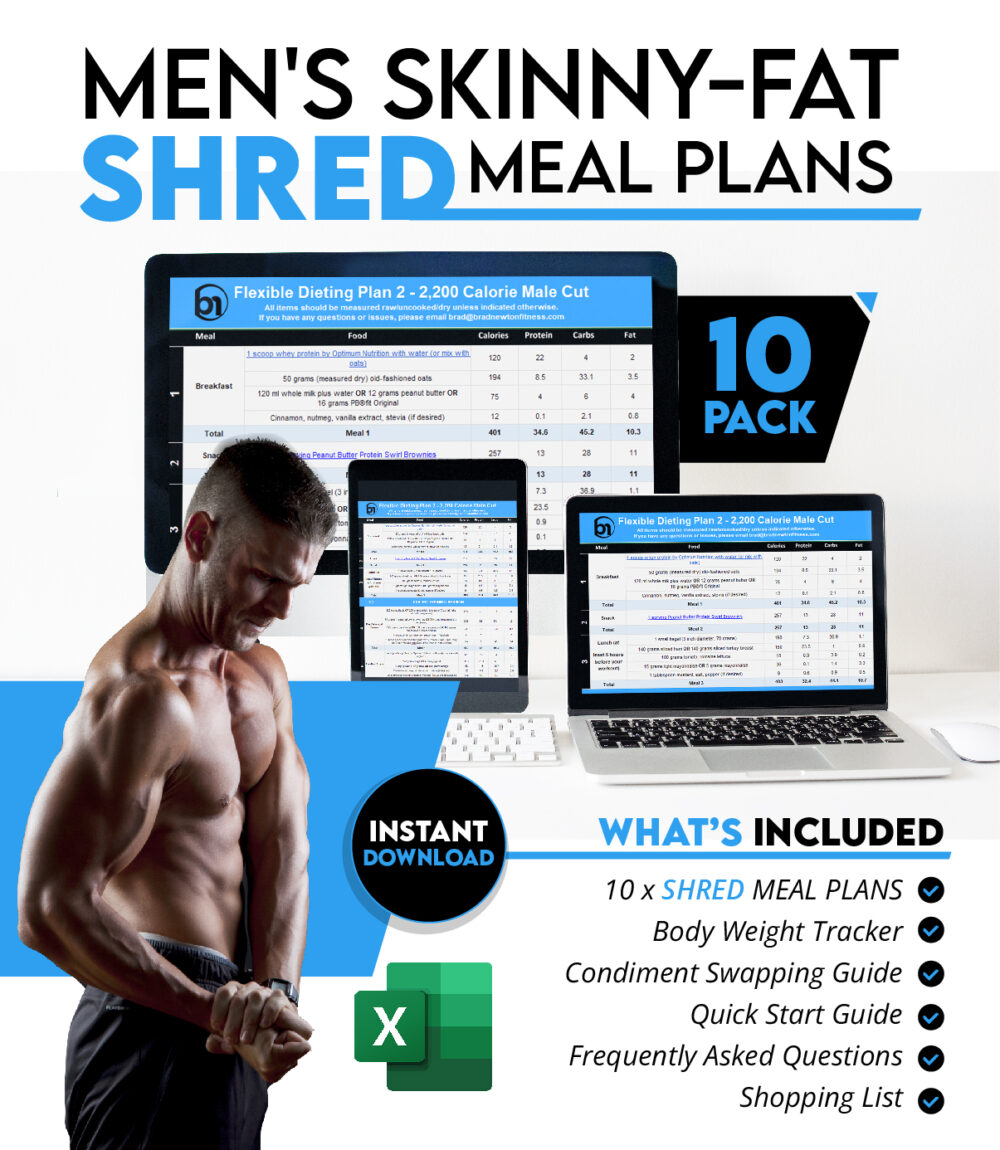
In the world of fitness and nutrition, protein water is making waves. Whether you’re looking to boost your recovery, hit your protein goals, or try a lighter alternative to traditional protein shakes, protein water might just be your new best friend.
As of December 2024, I’m currently preparing for a Hyrox competition in Brisbane (March 2025) in the Men’s Pro division. I’ve decided to try Muscle Nation’s protein water alongside my intense strength-endurance training program for Hyrox. Let’s dive into everything you need to know about this awesome drink.
Related: Struggling with being skinny-fat? The Push Pull Legs: Ultimate Beginner Guide book is your ultimate solution—get the 4-week plan, expert tips, and proven strategies to build muscle and finally achieve a lean, strong physique. Grab your copy here!
Types of Protein Used in Protein Water
Whey protein and collagen protein are two of the most used ingredients in protein water, each offering unique benefits.
- Whey Protein Isolate is a high-quality, complete protein derived from milk. It is packed with essential amino acids, particularly leucine, which is crucial for muscle growth and repair. Thanks to its rapid absorption, whey protein is ideal for post-workout recovery, helping to rebuild and strengthen muscles after lifting. Its light texture and minimal lactose content make it a popular choice for protein water, offering a refreshing alternative to “heavier” shakes.
- Collagen Protein, on the other hand, is derived from animal sources and is known for its benefits to skin, hair, nails, and joint health. While it lacks some essential amino acids, it is rich in glycine, and proline. Collagen protein dissolves easily and has a neutral taste, making it perfect for clear, light protein waters that cater to wellness and beauty-focused consumers.
As a 39-year old, I’ve been taking collagen products consistently for quite a few years now and, to this day, do not have any joint issues despite my insane training volume.
Together, these proteins provide versatile options in protein water, appealing to athletes, fitness enthusiasts, and those looking to enhance overall health and well-being.
Benefits of Protein Water
Protein water can pack a solid protein punch with very few calories, depending on the brand you choose. Take a typical 16-ounce (480-ml) bottle—it might give you 15 grams of protein with just 70 calories! That’s a huge win for anyone trying to maintain a calorie deficit while hitting their protein target.
At the moment, I’m sampling Muscle Nation’s protein water (‘Tropical Crush’ and ‘Apple Blackcurrant’ flavours), where each serve of protein water is 101 calories for 24 grams of protein. The ‘leanest’ whey protein powders typically yield the same amount of protein but at 120-150 calories per serve!
Some protein waters also come loaded with vitamins and minerals, which is a nice bonus for such a low-calorie drink. If it’s made with whey protein or collagen, you’re likely getting a dose of calcium and magnesium—both crucial for keeping your bones strong. On top of that, many protein water options include added vitamins like B6, B12, C, and D for even more nutritional value.
But here’s the catch: not all protein waters are created equal. Some brands sneak in a ton of added sugar, artificial dyes, flavours, or sweeteners, which aren’t doing your body any favours. While the sugar content in protein water is usually pretty low, it can add up if you’re smashing bottle after bottle every day. Always check the label to make sure you’re getting the good stuff!
Protein Water vs. Traditional Protein Shakes
When it comes to protein supplements, the choice often boils down to preference. Protein water is lighter and easier to digest, while shakes typically offer more calories and additional nutrients. If you’re cutting calories or want a quick protein boost without the “heavy” feeling, protein water is an excellent alternative. However, if you are really trying to maintain a calorie deficit and obtain that feeling of “fullness” (which is what I prefer), then stick with traditional plant-based or dairy-based protein shakes.
At the time of writing, 40-50% of my daily protein needs are coming from Macro Mike’s plant-based protein and Muscle Nation’s protein water. I’m presently shredding 2-3 kgs and adamant in maintaining a caloric deficit where the ‘fullness’ of Macro Mike’s protein powder will greatly assist.
Light and Refreshing vs. Creamy and Filling
Protein water is the clear, hydrating option for those who want something light and refreshing. To me, I feel like I’m drinking BCAAs (branched-chain amino acids)! It’s perfect for hot and humid days, during workouts, or as a quick recovery drink that won’t sit heavy in your stomach. Traditional protein shakes, on the other hand, are thicker, creamier, and more filling, often designed to replace a snack or even a meal. They’re ideal when you’re looking for something more substantial to keep you going.
Personally, I prefer protein water if I know I need to both hydrate and hit my protein target. I can hit two birds with one stone. If I’m planning to do a 2 hour Muay Thai class then I’ll have protein water which will serve as a BCAA to hit my protein target and electrolyte source, without the feeling of ‘heaviness’ in my stomach which I cannot have when doing heavy padwork and bag work!
Calorie Count and Macronutrient Breakdown
One of the standout benefits of protein water is its low-calorie count. Most protein waters contain fewer than 100 calories per serving, making it a great choice for those watching their intake or cutting weight. Traditional shakes typically pack more calories, often 200 or more, as they include added carbs, fats, and sometimes fibre to create a balanced meal or post-workout recovery option.
Protein Water for Weight Loss
Protein water can be a powerful ally in your weight loss journey. The high protein content helps increase satiety, keeping you feeling full longer and reducing the temptation to snack on high-calorie foods. Unlike sugary sports drinks or sodas, protein water provides hydration and essential nutrients without a significant calorie hit, making it an excellent choice for those aiming to create a calorie deficit. In my experience, protein water is not as satiating as a whey protein shake!
Additionally, protein water supports muscle preservation during weight loss. When you’re cutting calories, it’s important to ensure your body has enough protein to maintain lean muscle mass. The light and refreshing nature of protein water also makes it easier to incorporate into your daily routine, whether as a post-workout drink, a snack replacement, or simply a way to stay hydrated throughout the day.
For individuals with busy schedules, protein water offers a convenient and portable option to meet daily protein goals. Its low-calorie profile ensures you’re not consuming excess energy while still fuelling your body with the nutrients it needs to perform and recover. Incorporating protein water into a balanced diet and exercise plan can help you achieve your weight loss goals more effectively.
Post-Workout Recovery
After a tough gym session, your muscles need protein to repair and grow. Protein water is an ideal choice for post-workout recovery because it’s fast-absorbing and easy to drink. It also helps replenish fluids lost during exercise, keeping you hydrated.
Diet Compatibility
Wondering if protein water fits into your diet plan? The good news is, it’s versatile enough for most dietary approaches. Whether you’re on a ketogenic, vegan, or low-carb diet, there’s a protein water option for you. Just make sure to check the label for compatible ingredients.
Hydration Meets Protein Goals
One of the standout features of protein water is its ability to kill two birds with one stone: hydration and protein intake. Staying hydrated is essential for overall health and performance, and protein water ensures you’re not falling short on either front.
Protein Water for Athletes
For athletes, protein water provides the perfect combination of hydration and nutrition to suit an active lifestyle. After my intense Muay Thai training sessions, I often turn to protein water as a quick and convenient way to support muscle recovery. Its fast-absorbing protein content delivers essential amino acids straight to the muscles, helping to reduce soreness and speed up the recovery process. Plus, unlike the heavy feeling I sometimes get after a standard whey protein shake, protein water feels light and refreshing, making it ideal after a tough workout.
Additionally, staying hydrated is critical for peak athletic performance. Protein water combines hydration with protein, making it a dual-purpose solution for athletes who lose fluids and electrolytes through sweat. Many protein waters also include added electrolytes, further supporting endurance and recovery.
The low-calorie and easily digestible nature of protein water ensures that athletes can refuel without feeling heavy or bloated, making it an excellent choice before, during, or after workouts. It’s especially beneficial for endurance athletes and those engaging in high-intensity training, as it provides the necessary nutrients to sustain performance and rebuild muscle tissue.
By incorporating protein water into their training regimen, athletes can optimise their recovery and maintain peak performance, ensuring they’re always ready to tackle the next challenge.
Related: Struggling with being skinny-fat? The Push Pull Legs: Ultimate Beginner Guide book is your ultimate solution—get the 4-week plan, expert tips, and proven strategies to build muscle and finally achieve a lean, strong physique. Grab your copy here!
Protein Water and Building Muscle
Leucine, a branched-chain amino acid (BCAA), plays a pivotal role in muscle protein synthesis (MPS). It acts as a signaling molecule, activating the mTOR pathway, which is essential for initiating muscle growth. The clinically effective dosage of leucine for stimulating MPS typically ranges between 2 to 3 grams per serving, depending on the individual and their specific goals.
Protein water products often utilise whey protein isolate, a high-quality protein source containing approximately 10% leucine by protein content. This means a 20-gram serving of whey protein provides about 2 grams of leucine, approaching the leucine clinical effective dosage necessary to effectively stimulate MPS.
Protein Water Vs. Branched-Chain Amino Acids (BCAAs)
The primary difference between BCAAs and protein water lies in their composition, purpose, and nutritional value. BCAAs consist of three essential amino acids: leucine, isoleucine, and valine. These amino acids are typically available as powders, capsules, or ready-to-drink beverages and are specifically designed to support muscle protein synthesis, provide energy, and reduce muscle soreness.
In contrast, protein water contains a complete protein source, such as whey protein isolate or collagen, which provides all nine essential amino acids, including BCAAs. Protein water generally delivers a higher protein content per serving, usually ranging from 10 to 25 grams.
The purpose of these products also differs. BCAAs are primarily used for intra-workout support or as a quick source of amino acids between meals to prevent muscle breakdown. They are particularly beneficial for individuals following fasting protocols. On the other hand, protein water is designed to supplement daily protein intake, aid in muscle repair and growth, and support post-workout recovery. It serves as a convenient alternative to traditional protein shakes or whole food protein sources.
In terms of nutritional value, BCAAs focus solely on the three branched-chain amino acids and typically contain very few calories, ranging from 0 to 5 calories per serving, with no additional macronutrients. Protein water, however, offers a complete protein source and contributes to overall dietary protein needs. It typically contains 60 to 120 calories per serving, depending on the formulation and any added sweeteners or flavours.
When it comes to muscle building, protein water is more effective as it provides all the essential amino acids required to sustain muscle protein synthesis. While BCAAs can stimulate protein synthesis due to leucine, they cannot maintain it without the other essential amino acids, making them better suited as a supplement to an already sufficient protein intake rather than as a primary source.
Protein Water Top Brands
As of December 2024, the current top brands in the protein water space are Protein2o, Trimino Protein Infused Water, Premier Protein Clear Protein Drink, PWR LIFT Protein-Infused Water, and Isopure Zero Carb Protein Drink. These are among the top protein water brands available. They are recognised for their quality ingredients, taste, and nutritional profiles.
For the purposes of this article, I decided to review Muscle Nation’s protein water products (not sponsored) and determine if it’s worthwhile as a long-term protein water solution. Their product offers a refreshing alternative to traditional milky protein shakes, combining Hydrolysed Collagen and Whey Protein Isolate (WPI) to deliver approximately 23.6 grams of protein per serving.
I’ll break down the key features below;
- High Protein Content: Each serving provides around 23.6 grams of protein (101 calories!), supporting muscle recovery and growth.
- Added Collagen: Contains over 12 grams of collagen per serve, benefiting hair, skin, nails, joints, and connective tissues.
- Electrolytes and BCAAs: Includes essential electrolytes (magnesium, calcium, potassium, sodium) and over 4.6 grams of BCAAs per serving to aid hydration and muscle repair.
- Low in Carbohydrates and Sugar: With less than 2 grams of carbohydrates and 99% sugar-free, it’s suitable for those monitoring their sugar intake. In my experience, the biggest problem with electrolyte powders is their high sugar content! This product is very low in carbs.
- Gluten-Free: Suitable for individuals with gluten sensitivities.
While Muscle Nation’s Protein Water is a convenient and enjoyable way to boost protein intake, it’s essential to consider dietary needs and preferences. For those with lactose intolerance, the presence of whey protein isolate may be a concern, although it is typically low in lactose. Additionally, individuals seeking a vegan option should note that this product contains bovine-derived collagen and dairy-based whey protein.
In My Opinion
In my opinion, Muscle Nation’s Protein Water stands out as a versatile and refreshing protein supplement, ideal for those seeking an alternative to creamy protein shakes. I like it because the two flavours I sampled (“Apple Blackcurrant” and “Tropical Crush”) taste absolutely awesome. I like that it’s only 101 calories per serve for almost 24 grams of protein! So, if you are in a calorie deficit to get shredded then this is a perfect option to hit your protein target without exceeding your calorie target.

I’ve been mixing either one of these flavours with water, creatine monohydrate and Beta Alanine. Its combination of high-quality protein sources, added collagen, electrolytes, and BCAAs makes it a comprehensive option for supporting muscle recovery and overall wellness. At the moment, for the purposes of trying to remain satiated during my mini-cut for a Hyrox event, I’m also having Macro Mike’s plant-based protein shake.
Summary
I’ve been testing out protein water, and I have to say, it’s a fantastic option if you’re after something light and refreshing—especially compared to your typical heavy, milky protein shakes. It’s super convenient to grab post-workout, and it delivers enough protein to help kickstart recovery after training. I usually train in hot climates where it’s hard to stomach a whey protein shake sometimes! Protein water makes it much easier to hit your protein goals without feeling heavy.
That said, it’s not perfect. Some brands lean on artificial sweeteners, which might not be ideal for everyone. However, for a protein supplement that yields around 24 grams of complete protein for around 100 calories, you are able to more effectively remain in a calorie deficit and hit your protein target at the same time!
Overall, I’d say protein water is a solid addition to your diet if you’re after a quick, no-fuss way to up your protein intake. It’s a yes from me! 🙂
Related: Struggling with being skinny-fat? The Push Pull Legs: Ultimate Beginner Guide book is your ultimate solution—get the 4-week plan, expert tips, and proven strategies to build muscle and finally achieve a lean, strong physique. Grab your copy here!
Frequently Asked Questions
What is protein water?
Protein water is a beverage that combines water with protein, typically in the form of whey, collagen, or plant-based protein isolates. It provides a light, refreshing alternative to traditional protein shakes. For the purposes of this article, I was reviewing Muscle Nation’s protein water product (not sponsored), where their protein water combines two different protein sources, Hydrolysed Collagen and Whey Protein Isolate (WPI), with added electrolytes and BCAA’s (branched chain amino acids).
What does protein water taste like?
It’s like drinking water, but fruity and refreshing! To me, I feel like I’m drinking a BCAA shake (if you’re familiar with those?). The flavour and sweetness intensity can be adjusted by simply adding more or less water.
Who should drink protein water?
Protein water is suitable for athletes, fitness enthusiasts, or anyone looking to increase their protein intake. It’s also great for those managing their weight, recovering from workouts, or seeking a convenient protein source.
What are the benefits of protein water?
Protein water helps with muscle recovery, hydration, weight management, and maintaining muscle mass. It’s low in calories, easy to digest, and portable, making it a versatile option for various lifestyles.
How much protein is in protein water?
Most protein waters contain between 10g and 20g of protein per serving, though this varies by brand. Check the label for exact protein content.
Does protein water help with weight loss?
Yes, protein water can support weight loss by increasing satiety and reducing calorie intake. It’s a low-calorie option that provides hydration and nutrition, making it a better choice than sugary drinks.
Can I use protein water as a meal replacement?
Protein water is not designed to be a meal replacement since it lacks the calories and nutrients of a balanced meal. However, it can be a supplement to your diet between meals or post-workout.
Is protein water safe for everyone?
Protein water is generally safe for healthy individuals. Those with kidney problems, specific allergies, or dietary restrictions should consult a healthcare professional before consuming.
Does protein water have any side effects?
Overconsumption may cause digestive issues like bloating or discomfort. Some people may also react to specific protein types, such as whey or soy.
Can vegans drink protein water?
Yes, there are plant-based protein water options available that use pea, rice, or hemp protein. Always check the label to ensure it’s vegan-certified.
When is the best time to drink protein water?
Protein water can be consumed post-workout for recovery, as a mid-day snack, or anytime you need a quick protein boost. Its light nature makes it suitable for any time of day.
How does protein water compare to protein shakes?
Protein water is lighter, lower in calories, and more hydrating than traditional protein shakes. Shakes are often more filling and nutrient-dense, while protein water is ideal for hydration and quick recovery.
Can I drink protein water every day?
Yes, as long as it fits within your dietary protein requirements. It’s a convenient way to meet your daily protein needs without overloading on calories.
Where can I buy protein water?
Protein water is available at grocery stores, fitness supplement shops, and online retailers. Popular brands include Premier Protein, Protein2o, and Vital Proteins.
Can I make protein water at home?
Yes, simply mix your preferred protein powder with water and add natural flavourings like lemon juice or fruit extracts for a refreshing DIY option.
How much water should I mix with my protein water?
I suggest mixing your protein water with 400ml-600ml of water. However, you can dilute it in up to 1 litre of water if you prefer a lighter taste. Adjusting the water amount won’t affect the protein content, so feel free to customise it to your preference!




















